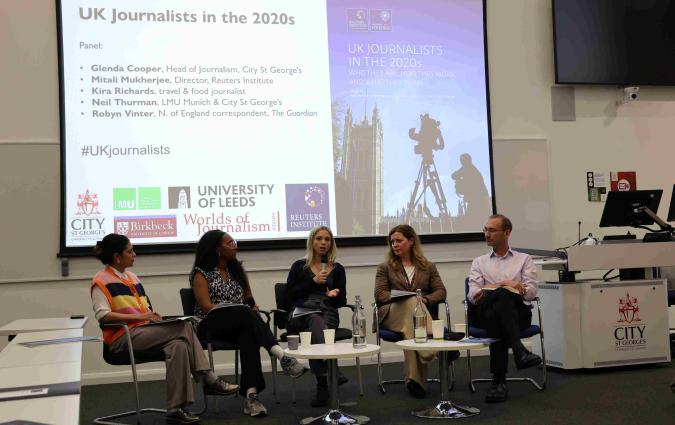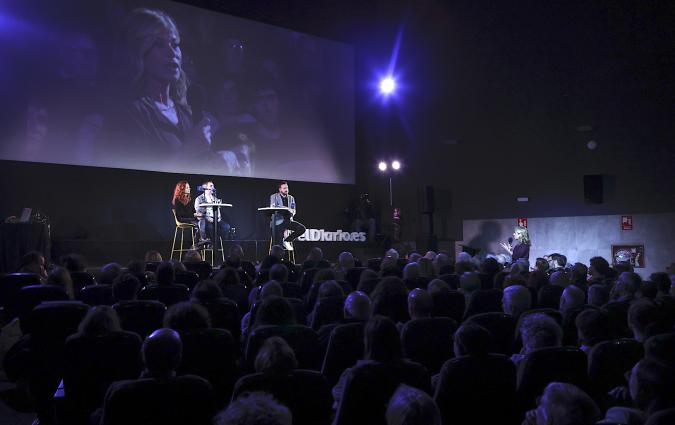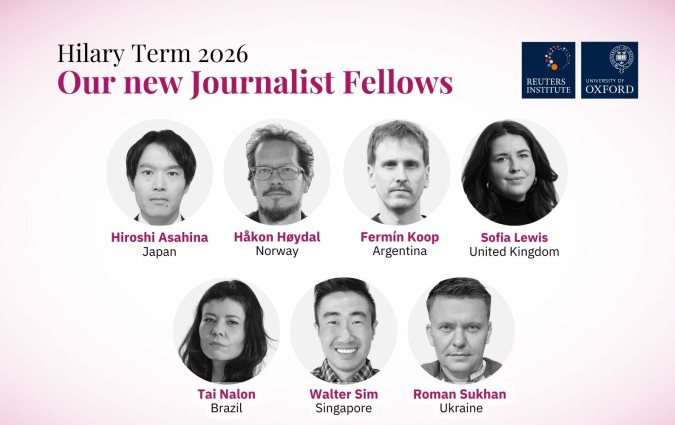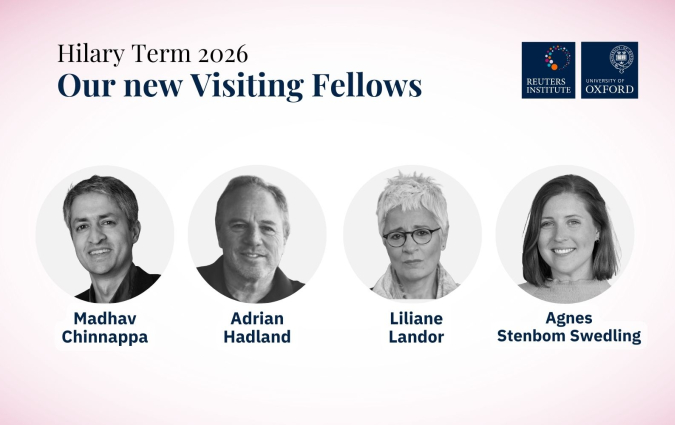Mitali Mukherjee on why to apply for our Fellowships: “The answer to the industry's problems will come from within journalists”
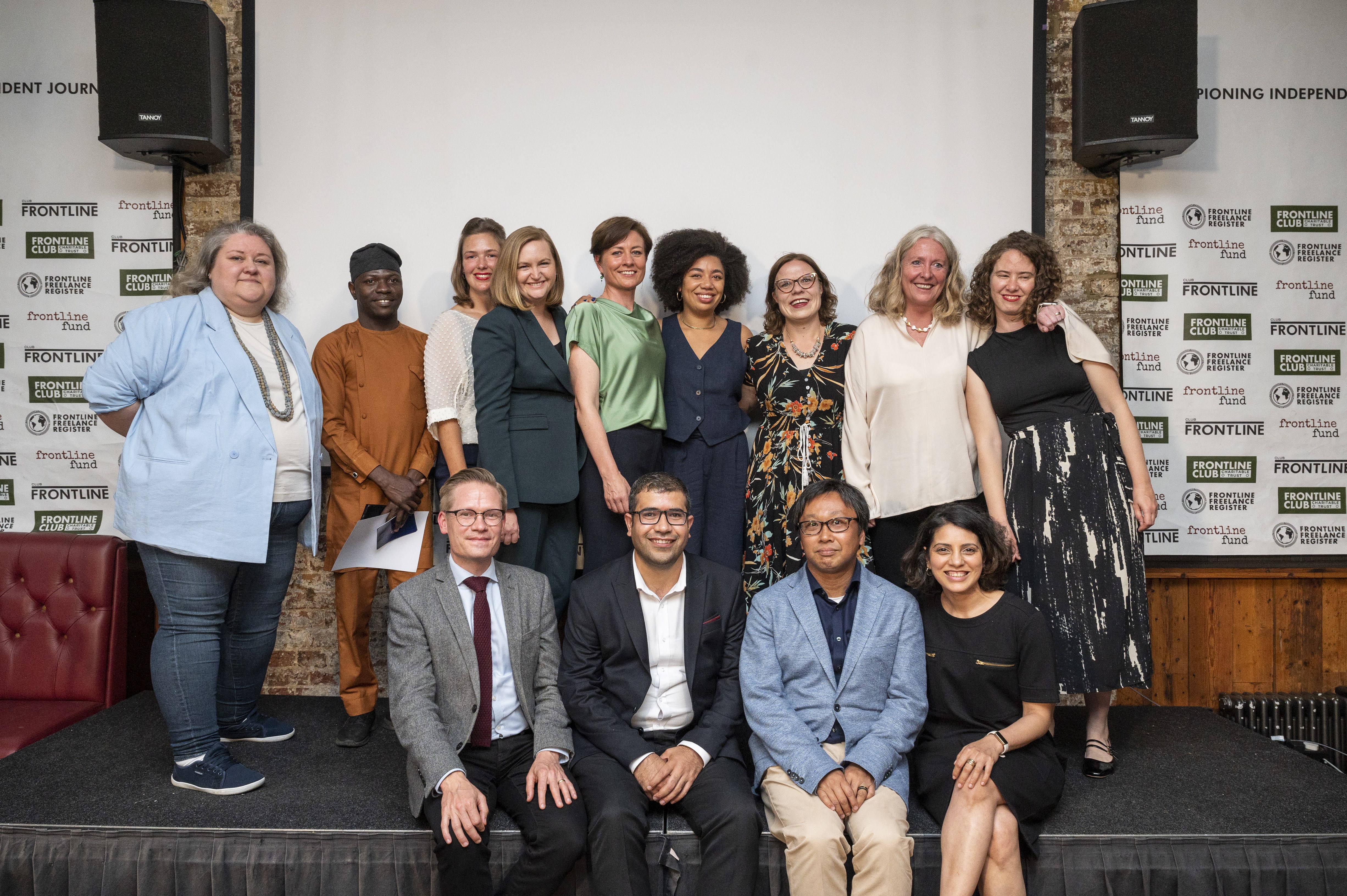
Our Journalist Fellows at our Summer Showcase, Frontline Club, London (Mitali seated bottom right), June 2024.
Mitali Mukherjee is a political economy journalist with more than two decades of experience. She is the Director of the Reuters Institute and was formerly the Director of Journalist Programmes running the Fellowship Programme alongside Caithlin Mercer and the rest of the team. As the Institute opens applications, Mitali explains in this interview who should apply for the programme, why it is particularly useful right now for the news industry, and which kinds of projects she is looking for. Find out more.
Q. Which kinds of journalists should apply for the Fellowship?
A. Aside from a baseline of five years' journalistic experience, our programme is open to journalists from across beats, geographies and interests. Our network of Journalist Fellows are a strong indicator of how varied the backgrounds and interests of successful candidates have been. It is also open for freelance journalists.
Q. How do you build every cohort in terms of diversity of purpose, experiences and geographies?
A. Our Journalist Fellows are selected from all over the world: Europe, Africa, the Asia-Pacific region, North America, and Latin America. We try to build a cohort that is both complementary to each other’s work yet unique in its own approach and area of focus. We are committed to the equality, diversity and inclusion tenets defined by the University of Oxford, which we are a part of. English language proficiency is not tested, but all discussions are conducted in English and Journalist Fellows are encouraged to both participate and take in the issues being explored.
Q. Many journalists will now be thinking about the projects they’ll present in their applications. What would you say to them? What are the qualities that make a good project?
A. Two driving forces: a clear question about the landscape of journalism that needs answering and why you want to address it. Very often, the projects the Journalist Fellows are keen on working on are developments that are quite personal to them but also resonate in the broader journalistic community. But it isn’t necessary to have a personal tie to the project you’re working on. What is important is to have a clear sense of why you believe this is critical for the news industry.
Q. Could you give a couple of examples of projects that epitomise what you are looking for?
A. I would avoid doing that, as that may lead interested applicants to think along the lines of the examples I cite. However, I would recommend reading through some of the previous projects Journalist Fellows have worked on, to get a sense of the approach – which is tethered in the core journalistic principles of seeking the truth and reporting it.
Q. Some journalists would hesitate before taking a break for something like this. How would you say the Fellowship might be useful for their careers?
A. I would flip the question and say our Journalist Fellowships are not a break from journalism, but instead a chance to think more deeply about issues around journalism. It is a unique and rare opportunity many practising journalists do not get while on the daily and weekly treadmill of news reporting.
This is core to the future of the industry in terms of the solutions you may draw from your time here and also critical for building and scaling your professional network. The opportunity to interact and engage with journalists who work in every part of the world is an incredible professional asset and learning that will be with you for a lifetime.
Apart from that, being accepted into a prestigious programme that offers you time to be in the University of Oxford with unlimited access to its rich resources, is hugely beneficial for a practising journalist.
Q. Aside from the personal project and peer engagement, what are some of the programme elements which offer fellows that chance to reflect on the challenges to journalism and their potential solutions?
The fellowship programme has been carefully constructed to offer time for engagement and discussion, as also personal study, research and reflection.
Through the course of the fellowship, there will be seminars and discussions on some of the key issues affecting journalism, including AI and news, misinformation, trust, sustainability, audience engagement, press freedom and a changing news ecosystem.
Individual mentoring is provided to all journalist fellows while they work on their project and there will also be workshops based on building essential reporting and newsroom skills.
One of the great advantages of the fellowship programme is the opportunity to learn about issues that are separate from journalism but inform the world we live in; journalist fellows can attend the many talks and lectures taking place in Oxford on issues ranging from politics to international relations, technology, culture and more.
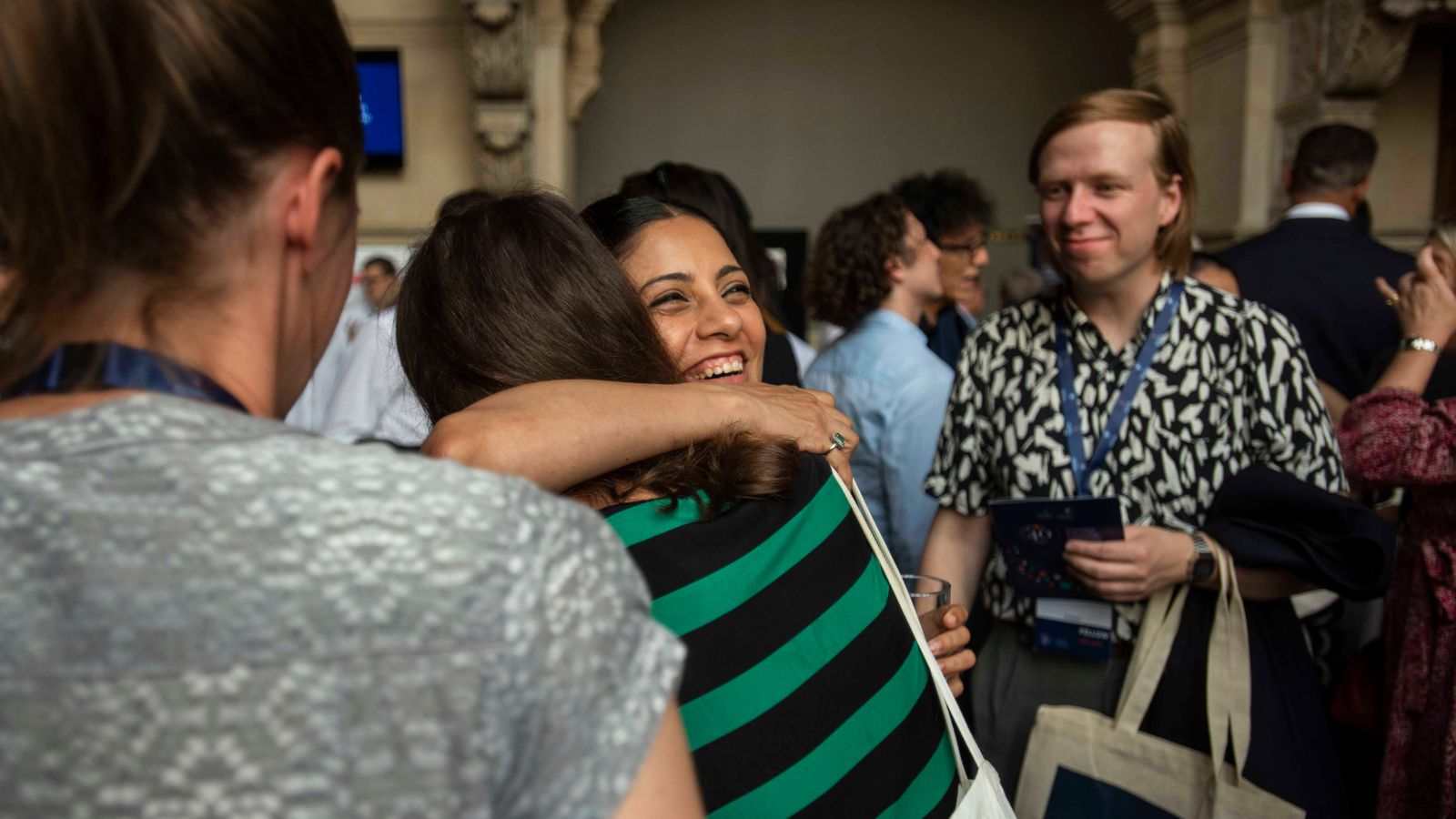
Q. In the few years you’ve been at the Reuters Institute are you aware of journalists who’ve used the fellowship to drive change within their newsroom or the wider industry?
The list is long and rich! To point to a few recent examples, Sannuta Raghu, a Thomson Reuters Foundation fellow from India published this important project on the idea of a News Atom that works a metadata blueprint for journalism in the age of AI. Katarina Schell, an APA fellow from Austria, and deputy editor-in-chief at APA worked on key AI concepts to grasp in a new hybrid journalism era. Niko Efstathiou, a climate fellow from Greece did a fascinating project on why wildfires breed misinformation and how journalists can guard against it and Jazmín Acuña a Thomson Reuters Foundation fellow from Paraguay and co-founder of El Surtidor published this deeply thoughtful project on change-centric journalism.
These are only a few examples that reflect the breadth of issues that our journalist fellows have worked on, while at Oxford.
Q. Finally, the news landscape looks pretty grim, with news about layoffs and projects shutting down. How do you think the Reuters Institute’s Fellowship can help the news industry at such a difficult time?
A. In an almost predictable and worrying cycle, the last decade or more has seen a slew of layoffs, news platforms being created and then disbanded and most importantly growing authoritarian pressure on journalists doing critical reportage. Added to that, a fraying connection with audiences means there are multiple levers hurting the world of journalism. AI as a rapidly evolving technology has added a new element of both challenges and opportunities for journalists.
The Reuters Institute’s mission is exploring the future of journalism worldwide through debate, engagement, and research. Our focus is on work that matters for the practice of journalism and its place in society and on issues that matter for working journalists and news media around the world.
The answer to many of these issues will have to come from within journalists - and it will come from analysing, questioning and understanding our own industry. The Reuters Institute cannot and is not attempting to change the news industry. What we can do is continue to provide independent high-quality research, expertly curated fellowships and access to all that a world leading university like Oxford can offer. Opportunities like our fellowship programme can thus help those who can create positive change – journalists, editors, media executives, technologists, policymakers, and engaged researchers across the world.
Key links on our Journalist Fellowships:
In every email we send you'll find original reporting, evidence-based insights, online seminars and readings curated from 100s of sources - all in 5 minutes.
- Twice a week
- More than 20,000 people receive it
- Unsubscribe any time


